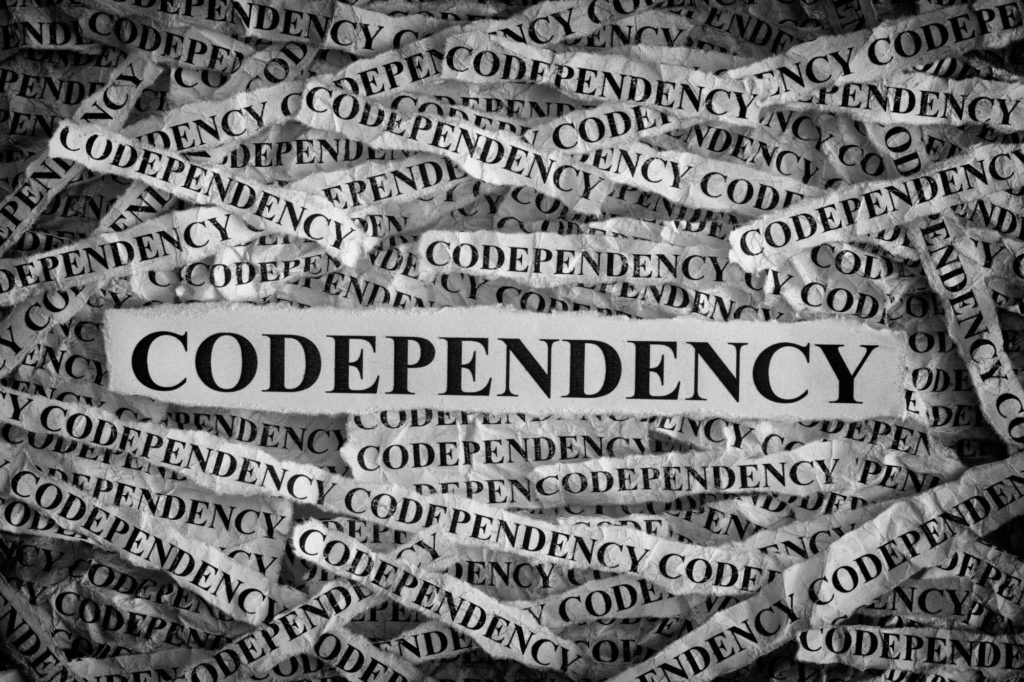Codependency: What Does It Mean to Be Codependent?
“Codependency” is a buzzword that has been thrown around a lot in the past few years, but what does it mean exactly? Codependency is not a diagnosis or a mental illness, but rather a form of emotional unhealthiness that can show up in relationships.
If you are concerned that you might be in a codependent relationship, there is nothing to be ashamed of. However, it is important to learn more about how this pattern is affecting your relationship and how you can break that cycle. Keep reading to learn what codependency is and how to address it.
What Is Codependency?
To start, what exactly is codependency? It is a broad term that covers a lot of situations, but it generally refers to a relationship where one party is overly dependent on the other. This can often be an unhealthy attachment style showing up in a relationship.
If you grew up in a family where there was stress, dysfunction, or trauma, you are more likely to have a codependent relationship. This can be with a spouse, parent, friend, or another person in your life. Other risk factors can include anxiety, low self-esteem, and the need for approval from others.
First, it is important to understand that it is perfectly normal to seek comfort from your close relationships and to feel anxious if that person pulls away or abandons you. Many behaviors that are labeled codependent stem from loving reactions.
However, codependency is when you “lose yourself” in a relationship and start feeling responsible for the other person’s emotional, physical, and/or mental well-being. You may have trouble maintaining boundaries or caring for your own needs.
Signs of Codependency
Now that you know more about what codependency is and is not, you may be wondering what some of the common codependency signs are. As you read these signs, keep in mind that codependency is not something to be ashamed of, but rather something to work on and heal from.
- You feel responsible for the actions of the other person
- You struggle to set boundaries
- Your relationship is one-sided and you feel like you are doing all the work
- You feel responsible for the other person’s happiness
- You struggle to trust others
- You feel an excessive need for approval from others
- You have a hard time identifying your own feelings in relationships
- Your need to help the other person becomes controlling
- You walk on eggshells around the other person and do not express your feelings due to fear of upsetting them
- You don’t feel like you can spend time alone
- The other person blames you when you try to set boundaries
- You want to change the other person
- You feel selfish for taking care of your own needs
Remember that relating to some of these does not mean you are necessarily in a codependent relationship. However, if you think you might be, know that codependency is a learned behavior that can be unlearned as you learn to replace it with healthy patterns.
What Makes Codependency Unhealthy?
Understanding codependency can be difficult because it starts as genuine love and care for the other person, which is a good thing. It can look like interdependent relationships, especially in the beginning, which is a healthy dynamic.
If codependency usually results from good intentions, what about it is unhealthy, and how does it become that way? The problem with codependency is that it erodes the emotional autonomy of both parties. The “giver” can become resentful and the “taker” can become emotionally dependent on the other.
So how do relationships develop this dynamic? It can be for many reasons. For example, many people learn codependency from their parents without realizing it, especially in situations where the child was blamed for the parent’s emotional state or expected to be a confidant for a parent.
If you learn this pattern as a child, you might continue to play it out in your adult relationships without realizing that’s what are you doing. If this is the case for you, it can be helpful to go to therapy to find out how to unlearn these behaviors.
Codependent patterns prevent you from having healthy, interdependent relationships where you mutually support one another and there is give and take. One person might support the other person more in their time of need and vice versa, but neither party feels that they need to fix the other or be responsible for their emotions.
How to Unlearn Codependent Behaviors
If you want to stop the cycle of codependency, there are several things you can do. One of the best ways to unlearn this behavior is to consider going to therapy. A therapist can help you learn where these patterns are coming from and how to replace them with healthier ones.
Another strategy is to work on your self-esteem. This is easier said than done, but it will improve your relationship patterns. When you know that you deserve to take care of yourself and have your own feelings be heard, you will be less likely to lose yourself in trying to care for someone else.
Setting boundaries is another important step. It can be hard to set boundaries with someone when they have grown to expect you to be responsible for their emotions. However, it’s okay to start small, and letting the other person know that you need to take care of yourself too is a good start.
Finally, it is important to be honest with the other person. Tell them why you think your relationship might have become unhealthy, and take ownership for your part in that. Explain to them what strategies or boundaries you would like to employ to improve the relationship.
Final Thoughts on Codependency
After reading this codependency guide, you hopefully have a better understanding of what it is and what signs you should look out for. Remember that this is a reversible behavior and that you deserve healthy relationships.
If you think you might have codependent tendencies and are searching for a therapist, consider contacting us at the Center of Balance Counseling. We offer a free phone consultation and would love to be of help to you with anything you are struggling with.



